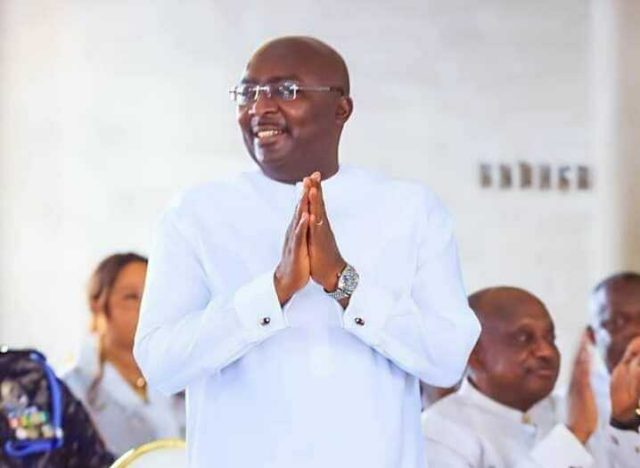In recent months, Ghana’s political landscape has been dominated by a refreshing and organic approach to campaigning, spearheaded by Dr. Mahamudu Bawumia. His campaign has become a masterclass in how humility, empathy, and a genuine connection with the electorate can transform political outreach, especially in comparison to Mahama’s more traditional campaign strategies. With an unpretentious and accessible approach that speaks to the everyday struggles of Ghanaians, Bawumia’s strategy exemplifies how modern political campaigns can evolve to become truly people-centered. This article examines three core aspects of Bawumia’s campaign strategy, contrasts them with Mahama’s approach, and highlights the distinctive tactics that make Bawumia’s outreach resonate with voters.
- Humility and Empathy at the Forefront
Dr. Bawumia’s campaign journey began not in a luxurious convoy or with grandiose announcements but with a bus tour across Ghana’s constituencies. Traveling in a bus, rather than a fleet of official vehicles, was a modest but impactful decision. Bawumia’s team moved from town to town, engaging directly with the “common” Ghanaian without the barriers often posed by formal security details or convoys. This choice of transportation and outreach method signified more than cost-saving; it reflected a deep humility and a personal understanding of the daily challenges Ghanaians face.
In many political circles around the world, candidates attempt to relate to the public by occasionally adopting common habits—think of millionaires handing out “sobolo” or engaging in communal labour to appear “in touch” with the struggles of everyday people. Such efforts often come across as insincere, and while they may make for catchy headlines, they rarely achieve a real connection with the electorate. Bawumia, however, does not need to “act” in touch with the people; his entire campaign demonstrates a genuine understanding that cannot be manufactured. This distinction sets him apart, making his campaign feel authentic, grounded, and empathetic. His campaign resonates not just because of what he says but because of how he engages—through listening, respecting, and embodying the humility that many Ghanaians admire.
- Environmental Awareness and Cost-Effective Choices
Beyond his commitment to humility, Bawumia’s bus tour demonstrates a keen awareness of the environmental impact of his campaign. With climate change and sustainability on the agenda worldwide, Ghana is no exception to the global push for eco-conscious initiatives. By choosing buses over large, fuel-consuming convoys, Bawumia subtly nods to this responsibility, reducing his campaign’s carbon footprint and making a statement on environmental stewardship. It’s a small change, but one that demonstrates a forward-thinking attitude and awareness of global concerns that align with the values of younger, environmentally conscious Ghanaians.
In fact, former President John Mahama has since adopted a similar approach, incorporating buses into his campaign efforts as well. While some may view this as imitation, it’s a commendable acknowledgment that this simple, eco-friendly campaign strategy is resonating with the public. By opting for these buses, Bawumia has not only set a new standard for cost-effective and environmentally conscious campaigning in Ghana but has also implicitly challenged other leaders to rethink their campaign choices in light of today’s environmental challenges.
- Non-Clustering and Strategic Outreach
Bawumia’s campaign also stands out due to its non-clustered, targeted outreach strategy. Unlike traditional campaigns that often rely heavily on organized party structures to mobilize supporters in clusters, Bawumia has chosen to focus on a more individualistic approach, moving organically from one area to the next. This allows him to identify weak spots and better understand the unique needs of each constituency. Through this strategy, Bawumia gains real-time insights that help him shape policies that are tailored to the unique socio-economic conditions of each region.
This non-clustered approach is data-driven, a reflection of Bawumia’s background as an economist and a “data man.” It’s not just about rallying numbers; it’s about meaningful, nuanced engagement. By not solely relying on organized structures, Bawumia’s campaign has identified critical areas that require attention and improvement, laying the groundwork for a governance approach that is responsive to the specific needs of all Ghanaians, not just the organized groups or strongholds. This approach aligns with some successful international campaigns that utilize data analytics to pinpoint voter needs and concerns on a more localized scale, adding a level of sophistication and precision that could be groundbreaking for Ghanaian politics.
Conclusion
Bawumia’s campaign has redefined what it means to engage in a democratic race in Ghana. His organic approach—grounded in humility, environmental awareness, data-driven strategy, and personalized outreach—presents a blueprint for a new type of political campaign, one that is sustainable, empathetic, and authentically connected to the electorate’s day-to-day life. His willingness to discard pomp and focus on genuine connections resonates strongly with Ghanaians who are weary of empty promises and superficial gestures.
On the other hand, Mahama’s adoption of some of these strategies, such as the use of buses, underscores Bawumia’s influence on the political scene and the pressure on other candidates to adopt more relatable and environmentally responsible methods. As Ghana continues to navigate the complexities of democracy and development, Bawumia’s campaign signals a shift towards a more compassionate, insightful, and accountable style of leadership that could influence political campaigns and governance across the African continent.
Ultimately, Dr. Mahamudu Bawumia’s campaign is more than a bid for power—it’s a testament to how the right mix of empathy, environmental responsibility, and data-driven strategy can resonate deeply with citizens. It offers hope that politics in Ghana can move away from the hierarchical and disconnected styles of the past toward a future where leaders genuinely understand and address the needs of the people.
By Joseph Osei Djaba, Political Analyst

















